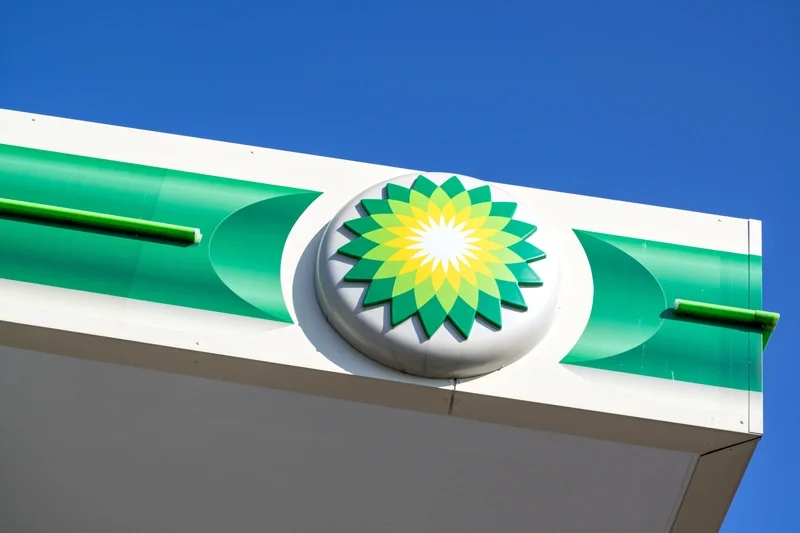
- Oil output target dropped amid strategy reset
- BP had aimed for 25% cut by 2030
- Shell raises upstream and gas volume guidance
Energy major BP (BP.) has reportedly abandoned its target to cut oil and gas output by 2030 as new chef executive Murray Auchincloss scales back the FTSE 100 giant’s energy transition strategy in order to win back the market’s confidence.
He wants to arrest the decline in BP’s shares, which edged up 0.5% to 419p on the news yet are down more than 10% year-to-date versus a 7% gain for the FTSE All-Share index.
When announced back in 2020, BP’s strategy was the most ambitious in the sector with the company vowing to cut output by 40% whilst rapidly growing renewables by 2030.
However, it has been rowing back on its sustainability goals under Auchincloss, who took over from Bernard Looney in January.
In February 2023, Looney scaled back the output target to a 25% reduction, which would leave it producing 2 million barrels per day at the end of the decade, with investors prioritising near-term returns over the energy transition.
The reports emerged as arch-rival Shell (SHEL) posted a mixed third-quarter update ahead of results on 31 October.
While refining margins ebbed in the third quarter, Shell increased volume guidance for both its upstream and liquefied natural gas businesses, sending the shares up 0.7% to £25.96 in early dealings.
TARGETING NEW INVESTMENTS
According to Reuters, sources close to BP say the company is now targeting new investments in the Gulf of Mexico and the Middle East in order to boost its oil and gas output.
Auchincloss took over in January, but the new broom has struggled to stem the plunge in BP’s share price.
While BP continues to target net zero emissions by 2050, Auchincloss will present his updated strategy, including the removal of the 2030 production target, at an investor day in February.
RIVAL IS ALSO ROWING BACK
Shell has also scaled back its energy transition strategy since Wael Sawan hopped into the CEO hotseat in January, hiving off power and renewable businesses and scrapping offshore wind, biofuels and hydrogen projects.
The shift at both FTSE 100 giants follows a renewed focus on European energy security following Russia’s invasion of Ukraine at the beginning of 2022.
THE EXPERT’S VIEW
Russ Mould, investment director at AJ Bell, observed BP may feel it is being ‘punished by the market for a strategy which included a 25% cut to oil and gas output by 2030 - already down from the original 40% reduction outlined in 2020 - so it appears this plan will now be ripped up completely.’
Mould said the problem with reducing hydrocarbon production is it generates most of the cash which allows BP to reward shareholders with dividends and share buybacks.
‘There is speculation BP will not only scrap the output reduction plan, but it will also seek to increase the volume of oil and gas it produces by investing in geographies like the Middle East and Gulf of Mexico,’ he explained.
‘Auchincloss needs to demonstrate he has a genuine plan apart from not doing what the market doesn’t like. If the reporting is correct, the company can expect to catch significant flak from regulators, politicians and environmental campaigners. However, that is probably easier to ignore than a stagnant share price.’
Shell has been on its own journey of backsliding on net zero commitments, remarked Mould.
‘However, it does have a more established strategy of focusing on natural gas, which some believe will play an important role as part of the transition away from more polluting fossil fuels like coal and oil.
‘The company’s liquefied natural gas business seems to be in decent fettle, with production guidance lifted in a teaser ahead of third-quarter results. However, an uncertain economic backdrop and an increase in capacity is hurting margins for its refining business.’
DISCLAIMER: Financial services company AJ Bell referenced in this article owns Shares magazine. The author of this article (James Crux) and the editor (Ian Conway) own shares in AJ Bell.




